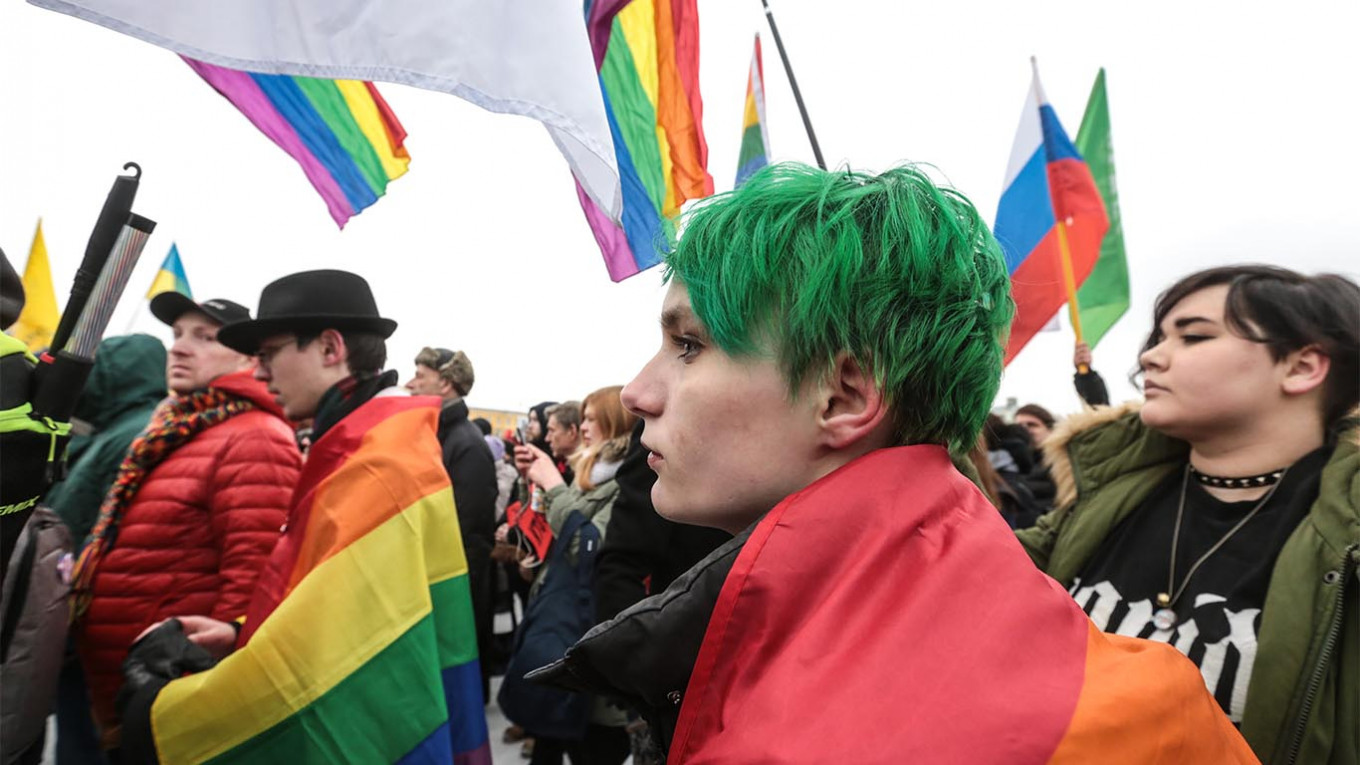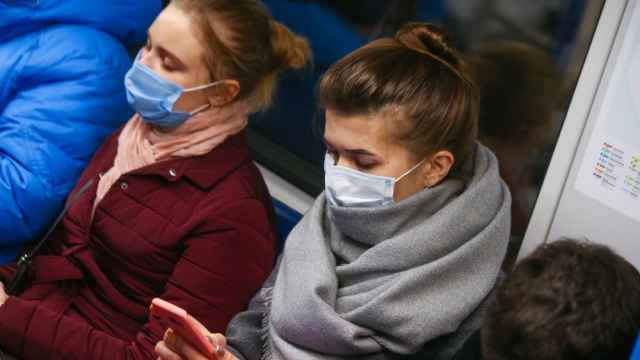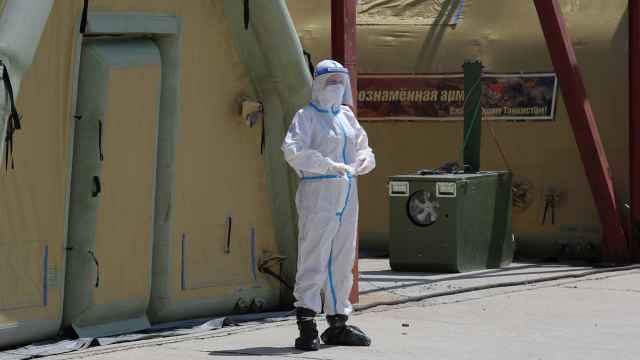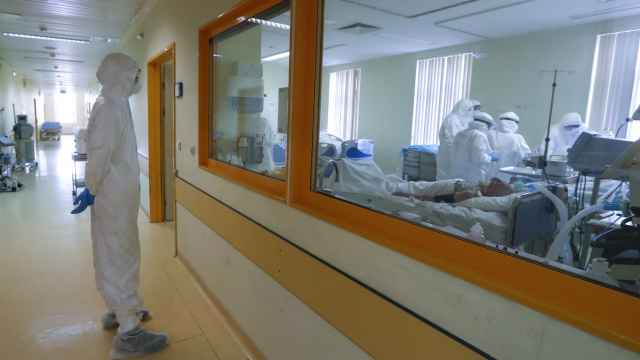For Sasha, a queer, non-binary person from Moscow, the clashes at home first started around age 13 or 14.
“It was basically made clear to me that I’ll never be accepted in my own family if I ‘keep having homosexual tendencies,’” Sasha, now 18, told The Moscow Times.
For years they coped with the tension and rows by staying with friends or changing how they presented themselves around their parents. But since the start of a lockdown aimed at curbing the spread of the coronavirus in Moscow two months ago, they have been forced to stay at home 24/7, existing in a constant state of anxiety and helplessness.
“Every time I walk through the door to the apartment it brings back painful memories ... I have to suppress myself at home, change the way I walk, talk, my mannerisms,” Sasha said.
Out of options, they launched an online fundraiser last month to raise enough money to move out.
Russia’s LGBT youth are increasingly seeking help for abuse, mental illness and even homelessness as schools have closed and the pandemic has forced them indoors with unaccepting families, said Svetlana Zakharova of the Russian LGBT Network, one of the country’s largest LGBT organizations.
“Right now, people are being locked in quite small places ... and a child, a minor, can’t do what he or she would do in normal circumstances [to cope],” Zakharova said. “There are many situations where [LGBT] people are locked together with aggressors or with people who don't know about their sexual orientation or gender identity.”
According to the NGO’s data, the number of calls to its hotline since March has increased by 72.9% compared with the first three months of 2020 and by 35.4% compared to the same period in 2019. Requests for help from its online psychologist chat — a popular service among younger people — have increased by 96.3% compared to the first three months of 2020 and are up 174% from the same period in 2019.
“Before [the coronavirus], the chat was working five to six hours a day, and now it’s working 24 hours a day because of the huge number of requests,” Zakharova said. “Many requests for legal and psychological help are coming from minors.”
Musician and queer activist Slava Rusova said that quarantine has intensified problems that already existed for many young queer people.
“I think that quarantine has exacerbated two main problems. First of all, it’s domestic violence. There are already serious struggles with it in our country. Living in an apartment with abusive parents 24/7 is real torture,” she said.
“The second problem is communication: high-quality, accepting communication that queer teens can get only in a circle of close friends. Lack of a safe environment is a huge problem at any time, but now especially.”
While polling has indicated a gradual shift toward tolerance of LGBT people among Russians in recent years, homophobic attitudes, violence and government policies remain prelavent amid Russia’s pivot to “traditional values” under President Vladimir Putin.
Next month, Russians are set to vote on a set of constitutional amendments, one of which would add language defining marriage as a union between a man and a woman to Russia’s basic law. Another would allow Putin — who recently vowed gay marriage won’t be legal in Russia as long as he is president — to extend his presidency through 2036.
According to Zakharova, a law passed in 2013 that prohibits the display of “homosexual propaganda toward minors” has discouraged teachers, counselors and community members from directly helping LGBT youth stuck in abusive households.
“It creates this atmosphere of fear where psychologists don't know if they can provide psychological support and teachers don't know how to behave if they have an LGBT student,” she said.
Even if their home environment isn’t directly abusive, young people still face challenges expressing their identity around family. Anastasia, 18, identifies as lesbian but hasn’t come out to her parents.
“Since I became self-aware, my main concern has been avoiding the LGBT subject. And it still is,” she said. “My biggest problem is my own silence when I hear ‘What about a future husband?’ I understand that I can’t speak about the way it is, and it eats away at me. Being in an atmosphere of sexism and silence about homosexuality, I don’t fully accept myself.”
The St. Petersburg-based Vykhod (Coming Out) LGBT group classifies psychological pressure such as ignoring a person’s coming out, deliberate misgendering and disparaging comments about someone’s personal life as a form of domestic violence due to the toll it can take on mental health.
“I learned that [my parents’] love was conditional, or rather they loved a perfect version of me... that just doesn’t exist in real life,” Sasha said. “This disorganized attachment system really broke me and gave me bipolar disorder, depression, chronic derealization, emotional numbness, trust issues and fear of emotional intimacy.”
In addition to psychological harm, LGBT youth are at increased risk of homelessness, either because they leave home of their own accord or are thrown out.
“In all of Russia there is only one shelter for LGBT people and it’s in Moscow,” Zakharova said. “Homelessness is a huge problem but for many reasons including this ['gay propaganda'] legislation, there are no organizations that work specifically with homeless LGBT people or homeless LGBT minors.”
With coronavirus lockdowns slowly lifting in many regions of the country, there may be light at the end of the tunnel for young LGBT people who have been self-isolating with family.
“In a way it will improve, because children will be able learn strategies [for coping], like just leaving their home if there’s a question of violence,” Zakharova said. “But in general, this violence exists and it’s almost invisible in Russian society.”
For Sasha, waiting for a return to normal isn’t an option.
“I have big hopes for the future,” they said. “I want to be a writer, I want to try making music, I want to have freedom in expressing myself and eventually move to a more progressive country, but I can’t do any of this if I don’t move out.”
Some names have been changed to protect individuals’ privacy.
A Message from The Moscow Times:
Dear readers,
We are facing unprecedented challenges. Russia's Prosecutor General's Office has designated The Moscow Times as an "undesirable" organization, criminalizing our work and putting our staff at risk of prosecution. This follows our earlier unjust labeling as a "foreign agent."
These actions are direct attempts to silence independent journalism in Russia. The authorities claim our work "discredits the decisions of the Russian leadership." We see things differently: we strive to provide accurate, unbiased reporting on Russia.
We, the journalists of The Moscow Times, refuse to be silenced. But to continue our work, we need your help.
Your support, no matter how small, makes a world of difference. If you can, please support us monthly starting from just $2. It's quick to set up, and every contribution makes a significant impact.
By supporting The Moscow Times, you're defending open, independent journalism in the face of repression. Thank you for standing with us.
Remind me later.







